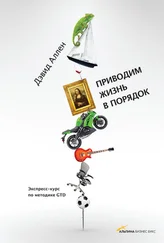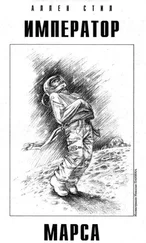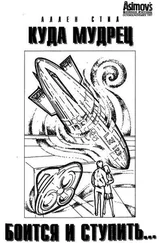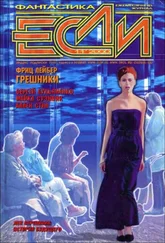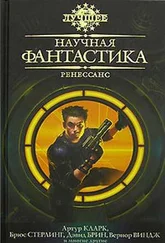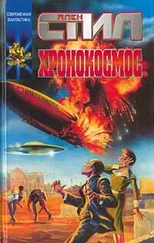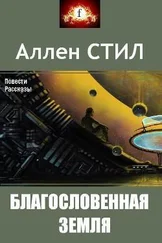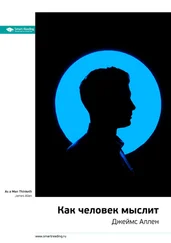“Never mind. Long story.” Fred shook his head. “Go on up and have fun. Just don’t let anyone know you’ve met us, if you know what’s good for you.”
Nat hesitated and then turned and walked across the street. The two cops watched him, and sure enough, before he set foot on the stairs, one of them moved to block his way. But then a kid about Nat’s age who’d been standing behind tapped the policeman on the shoulder and whispered something in his ear. The cop nodded and without a word stepped away, swinging his nightstick to let Nat know that it was okay to proceed. Letting go of his breath, Nat walked upstairs and through the door.
Caravan Hall was a single large room with a bare wooden floor and walls painted in a pseudo-Egyptian art-deco style, the sort of second-floor loft usually rented out for lodge meetings and private dances. Although the balcony doors were open, the room was stuffy with the trapped heat of a summer day; the only concession was a watercooler off to one side, with a coin dispenser that sold paper cups for a nickel. One look at it, and Nat decided that he’d rather go thirsty; the dollar he’d coughed up at the folding paper near the door represented half of what he’d earned last week in commissions from the part-time job he had at his family’s shoe store, and he’d need the pocket change he had left for a meal and the subway ride back home.
The room was filled with young men—mainly in their teens and twenties, most of them wearing jackets and ties—but, so far as Nat could tell, only two or three girls. They chatted with one another, leafed through the hectographed fan publications set out on display tables, studied the garish cover paintings from pulp magazines that had been placed on easels. A projection screen had been set up at the far end of the room, and the program sheet he’d been handed told him that Metropolis would be shown that evening.
Nat had heard of the movie but had never seen it; he wondered if his father would mind too much if he stayed late to catch it. Probably. His father wasn’t crazy about his son’s fascination with trashy pulps, let alone his aspiration to write for them. This might be the only day he’d be able to spend at the convention, and only because the store was closed on Sunday. Nat wandered through the crowd, determined to make the best of it but still at a loss as to how.
He noticed a small group standing off toward one side of the room and walked over to see what was going on. He discovered that they were all looking at a tall guy with a goofy smile who had shown up wearing a fin-shouldered outfit that looked as if it had come straight out of a Buck Rogers strip; the crowd was both admiring and laughing at his costume, and the chap wearing it was basking in the attention. As he moved closer to get a better look, Nat bumped shoulders with a teenager just a year or two younger than himself.
“Sorry,” Nat said, and the other youngster smiled forgivingly. “Will you get a load of that?” he added, trying to strike up a conversation.
“Yeah, it’s something, isn’t it?” The boy wore an open-collar shirt and no tie; his casual attire and midwestern accent told Nat that he wasn’t a New Yorker. “Forry made it all by himself. He wanted to wear it on the bus, but I wouldn’t let him.”
Nat figured that this must the same Forry whom Cyril Kornbluth had punched earlier. He wondered if it was because of the costume or simply because Cyril liked punching people. Whatever the reason, he decided not to mention it. “Where did you come from?”
“Los Angeles.”
“You took the bus all the way from California?” Nat was incredulous. The boy nodded happily. “How long did it take you to—?”
“Just who the hell do you think you are?” a voice demanded.
At first, Nat thought someone was addressing him. When he looked around, though, he saw that the voice belonged to someone standing directly behind him and the guy from California. Another teenager, he was directing his anger at a man in his late twenties.
“The convention chair, that’s who,” the older man replied, just as angry as the kid. “And if you’re going to be passing out those things”—he pointed to a bunch of red pamphlets in the youngster’s hand—“then I reserve the right to tell you to take a hike.”
“Me? What are you coming at me for?” Stocky and a head shorter than the man who’d confronted him, with a peach-fuzz mustache grown in an obvious attempt to make himself look older, the kid had the pugnacious attitude of someone who’d grown up on the street; Nathan’s ear picked up a Philly accent. “They’re not mine, pal. I just found them stashed under the radiator and thought—”
“You’d be a good guy and hand ’em out?” The convention chairman—this must be the Sam Moskowitz, Nat figured, whom Cyril Kornbluth said had called the cops—reached to take them away. “Fat chance I’m letting you Futurians pass around your commie filth. Give ’em here!”
The kid backed away, and as he did, one of the pamphlets fell from his hands. Curious, Nat bent down to pick it up. He barely had a chance to read the headline— BEWARE THE DICTATORSHIP! —before Sam snatched it away from him.
“Hey!” Nat exclaimed. “I was looking at that!”
Sam ignored him. By then, several people who’d been admiring the man in the futuristic costume had turned their attention to the argument. From the corner of his eye, Nat noticed that one of them was a pretty girl about his own age, one of the few females in the room. Nat hoped that he wasn’t embarrassing himself.
“Surely, just reading the material isn’t grounds for expulsion.” This from another bystander, a tall chap with a beak nose and ears like pitcher handles. He gestured to the pamphlet Sam had taken away from Nat. “If you don’t want to be accused of being a dictator, perhaps you shouldn’t behave like one.”
The convention chairman cast him an angry glare, and in that moment of distraction, the girl moved in. “May I have one of those, please?” she asked the kid, politely holding out her hand. “I’d like to see what it says.”
The kid grinned and started to give her a pamphlet, but Sam blocked him. “Oh no, you don’t! Try that again, and I’m throwing you out with the rest of the Futurians!”
“Oh yeah? Then how come you let Asimov in?” He pointed to a fellow wearing a bow tie who stood nearby. “He’s one of them too, y’know.”
“Hey, leave me out of this,” Asimov said.
“He agreed to behave himself and not bring politics into the convention.”
“Politics, or just politics you don’t like?” The kid gave him a look of contempt. “You’re about as bad as Herr Schicklgruber, you know that?”
Sam’s face went red, his lips pulling back from his teeth. Nat saw his hands start to curl into fists, and he knew that a punch was coming.
“Hey, now, wait a sec,” he began, stepping forward to place himself between the two combatants.
But Sam was already in motion, and all Nat managed to do was get in the way. Caught off balance, he fell to the floor; a second later, he found himself at the young lady’s feet. She had nice legs. He looked up to find her staring down at him, both aghast and amused, and he was trying to find something clever to say—how would Cary Grant handle this?—when another guy rushed forward to push the chairman and the kid away from each other.
“Okay, break it up!” he demanded. “No fighting in here!”
“Get ’em out of here, Willie!” Sam snapped, pointing to both the kid and Nat. “Throw ’em out, both of ’em!”
Nat stared at him. “Now just a minute! I didn’t—”
“No, he did not.” The girl stepped over Nat to confront Willie. “He was trying to stop a fight, that’s all. Your friend—”
Читать дальше


